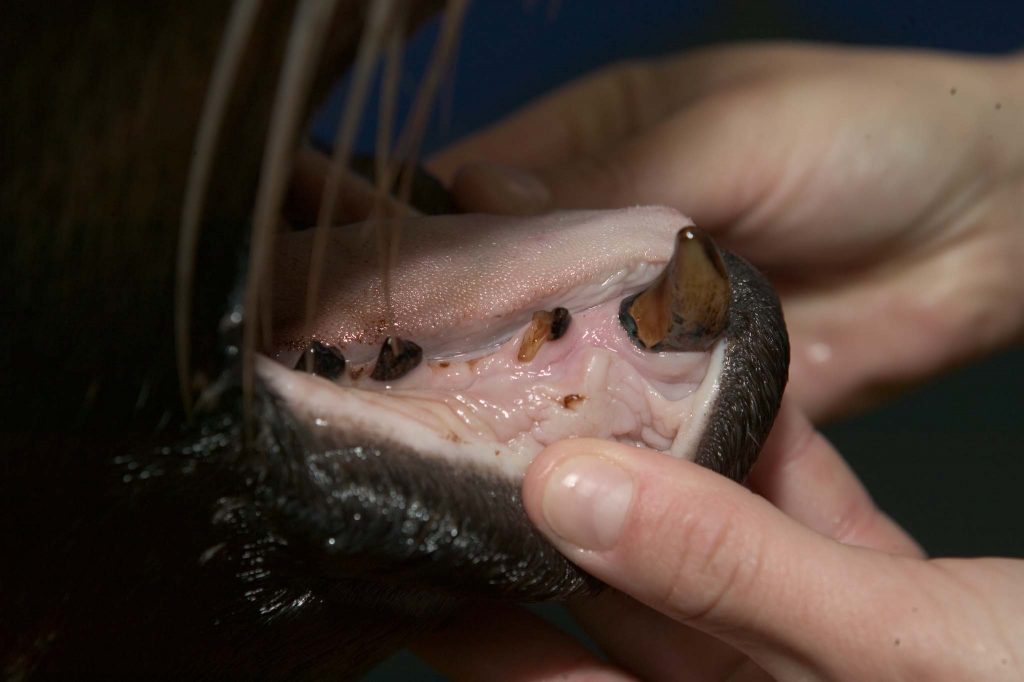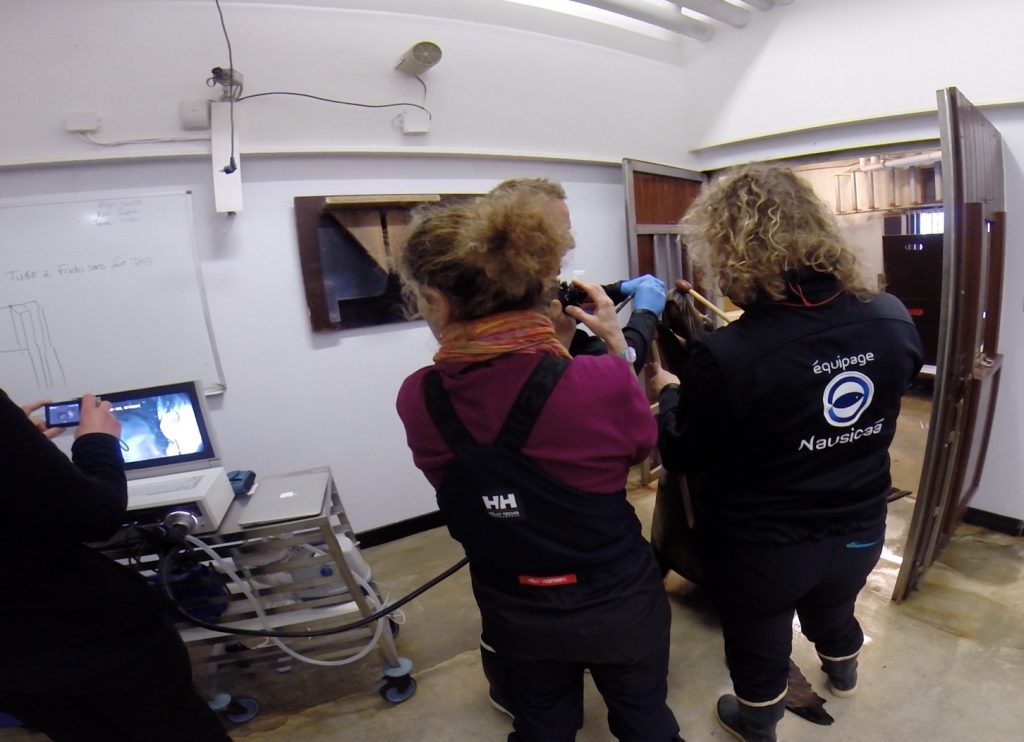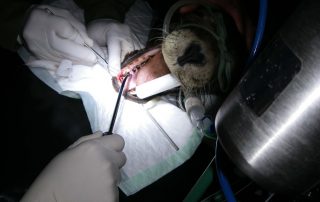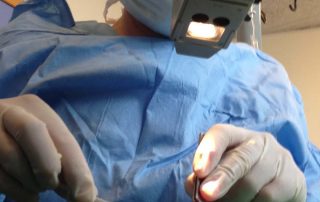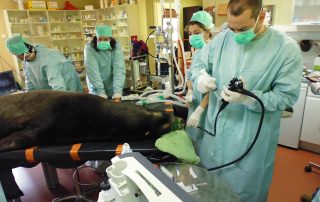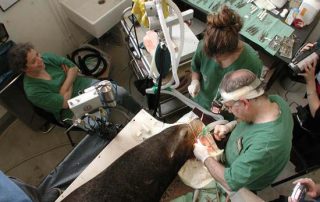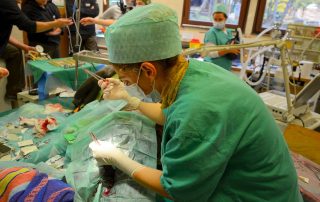Dentistry
Teeth problems occur relatively frequently in captive pinnipeds (and more frequently in sea lions than seals). However, they are often seen at a late stage of the disease, or not at all, either because the animals have not been trained to accept oral examination, or simply because some establishments do not check the mouth of their animals.
Treatment can also be difficult, as antibiotic treatment of the infected site will in most of the cases only provide a temporary reduction of the problem (like periapical abscesses for example) whereas the correct and definitive treatment requires a general anesthesia, specialised surgical equipment and skills to extract the infected teeth, a correct follow-up and access post-intervention.
MMVS works together with recognized international dentistry surgeons with experience in exotic animals.
Intubation/Endoscopy
Intubation or gastro-endoscopy is a minimally invasive diagnostic medical procedure. Among others, gastric intubation (the passage of a tube through the mouth until the stomach) can be used to re-hydrate an animal (e.g. during molting, during a treatment, because of kidney problem or post-surgically) and to carry out stomach sampling (controlling the quality of the gastric fluid and digestion ability). Gastric endoscopy can be used to identify the presence and help in the removing of foreign objects.
With animals kept in zoological environment, whatever the precautions and information available, the ingestion of foreign bodies is an even more frequent eventuality. When anesthesia becomes necessary to control this, it can become a more delicate intervention.
It is absolutely possible to desensitize and train an animal to accept the introduction of a gastric tube, accept rehydration and move on to the introduction and manipulation of the flexible tube of an endoscope enabling, in case of necessity, to control for the presence or not of a foreign object, without the necessity of anesthesia.
MMVS can scope your sedated pinnipeds or restrained dolphins for foreign body identification, stomach control, bronchoscopy or BAL. MMVS works with different colleagues for foreign body removals or laparoscopy interventions.
Contraception
Facing a major reproductive success in human care, it seems increasingly necessary to better understand the physiology of reproduction in Pinnipeds and to develop reliable techniques of birth control. Physical separation, permanent castration, reversible and immunological contraception are all means of control used by zoos and marine facilities to master the reproduction of their animals. The goal is ultimately to ensure optimal genetic diversity, reduce overcrowding and the risk of intraspecific conflicts that may arise.
MMVS reviews with you the contraceptive methods that would be the best adapted to your population, your actual situation and your wishes for the future.

